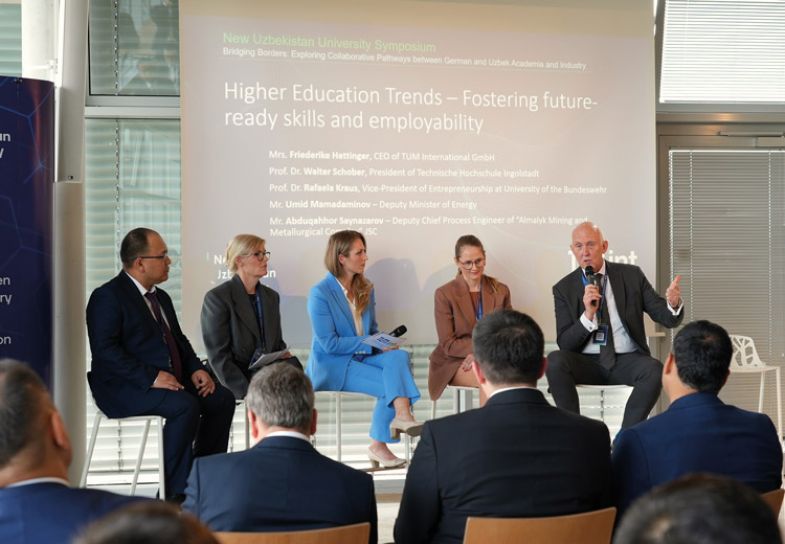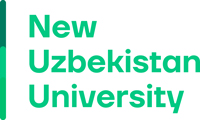
New Uzbekistan University is leading efforts to encourage collaboration with Germany’s higher education institutions and business sector
The pursuit of knowledge flies in the face of international borders. One look at the output of the higher education space makes this clear. That’s why universities in Germany and Uzbekistan have fostered such a close relationship, aware that collaboration will lead to better pedagogical methods and greater real-world impact.
On 11 April 2024, the Technical University of Munich played host to a symposium designed to highlight its partnership with New Uzbekistan University (NewUU), an institution only established in 2021 but which has already cemented itself as a leading model for educational progress in the country. The symposium was titled Bridging Borders: Exploring Collaborative Pathways Between German and Uzbek Academia and Industry.
The symposium also had the aim of encouraging collaboration between academic and industrial leaders from Germany and Uzbekistan, serving as an essential tool in the introduction of NewUU to the Bavarian innovation ecosystem and helping with the development of long-term relationships among representatives of the leading technical universities, industry members and the public sector.
Among attendees to the symposium were representatives of high-profile businesses such as Siemens, Deloitte and Airbus, as well as many Bavarian ministries. Representatives from Uzbek businesses also attended, including Uzbekistan Airways, Almalyk Mining and Metallurgical Complex and various state-owned enterprises. Heading up the Uzbek delegation at the symposium was the country’s minister of preschool and school education, Khilola Umarova, who took part in the symposium’s opening address alongside NewUU’s honorary president, Wolfgang A. Herrmann.
In addition to the symposium, the Uzbek delegation met with various German universities to sign memorandums that formalised their collaborative endeavours. Memorandums of understanding (MOUs) were signed with Technische Hochschule Ingolstadt, Technical University Nürnberg and Technical University Bergakademie Freiberg, to name a few.
Both the symposium and the MOUs represent just the starting point for collaboration between Germany and Uzbekistan. “We are happy to expand our cooperation in any number of ways,” Umarova said during the symposium. “We hope to introduce internship programmes for our students in German companies, create an international industry advisory board with leading firms from Germany and Uzbekistan and launch mobility programmes for faculty members and students at all levels.”
Uzbekistan’s rich history and culture of innovation are at the heart of the collaboration with German higher education institutions and were prominent during the symposium. Nowhere is this more visible than in the field of science, where Ulugh Beg Mirza, the famous Uzbek astronomer and mathematician, living more than 600 years ago, determined the length of a stellar year to an accuracy within a minute. This is just a single example of the discoveries and feats Uzbekistan has been responsible for.
“Staring into a new future can be daunting,” Herrmann said during the symposium. “But more than that, NewUU, its academics and students, as well as the expertise of all the Uzbek people, attempt to shape it through their work every day. We believe that collaborating with industry leaders from Germany and beyond will help make this future a reality.”




